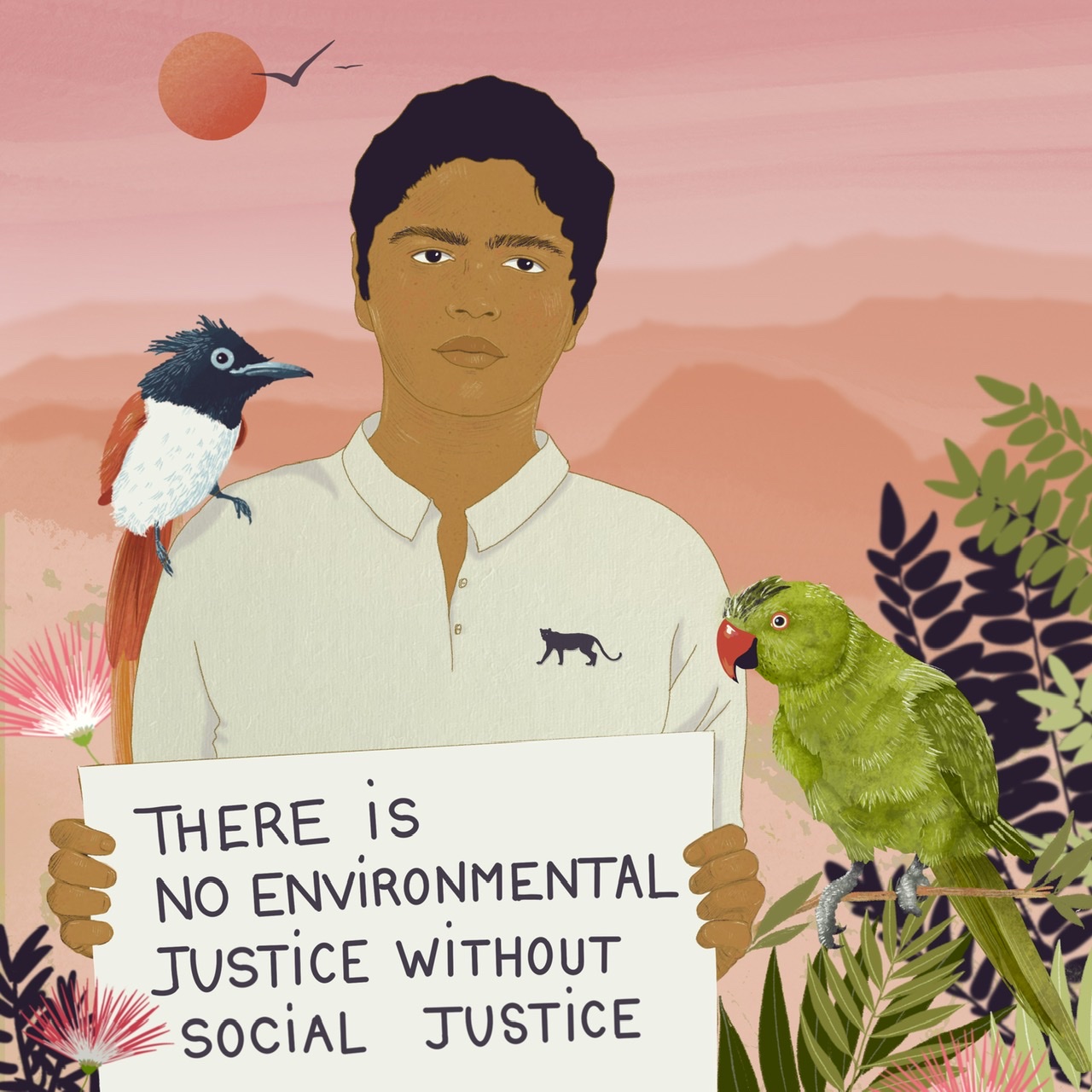The importance of voices from the global south

As a child, I fondly remember looking out my balcony and feeling a sense of awe and curiosity each time a sparrow flew by or a hornbill jumped onto the branches of the tree that shrouded my house. My parents spent my childhood making sure my life revolved more around the natural, outside world, rather than just about what was in my textbooks. Throughout my younger years they took me to several national parks and sanctuaries across India, which ignited a life-long passion inside me to explore and discover more about the wild world, about our planet’s biodiversity.
But as I grew older, I realised the increasing danger that issues like climate change and deforestation posed to the planet and to people, especially those who had brown skin like mine and came from developing countries like me.
Being a person of colour, and being from the global south, activism doesn’t come naturally to me. Protests and uprisings aren’t encouraged, or looked upon favourably. Environmentalism isn’t appreciated. Activism is often associated with unhealthy rebellion. Business as usual is the norm of the land.
While most of those living in and around forests, occupying positions of vulnerability within society, feeling the effects of water scarcity, drought, heatwaves and pollution and having their ancestral lands snatched away from them are people of colour, the international climate movement is yet to give them the recognition, and most importantly, the representation they deserve. Lines such as ‘overpopulation is the biggest driver of climate change’ or ‘brown people need to stop having kids and get a job’ enable privilege, racism, discrimination and eco-fascism. Brown voices in the movement are still suppressed, and neglected. The global south is still struggling to have a voice of its own, and to get it heard. Our stories are still being swept under the carpet, and our plight being trivialised. I fight on a daily basis to be heard, and I’m one of the privileged few, who have access to such forums and platforms like social media or mobilisation where we can raise our voices.
“The global south is still struggling to have a voice of its own, and to get it heard. Our stories are still being swept under the carpet, and our plight being trivialised.”
As this global fight of recognition must go on for activists like me, the other fight is the one we all rage with our planet. All of us, regardless of country, race and gender. Environmental destruction knows no boundaries, no borders. We city-goers, in our hurried hustle to live the city life, have forgotten the basic elemental relationship between man and nature that has sustained us for centuries. We have completely digested the urban setup as an irreplaceable boon, but left behind the very earth that has given us life.
My song is a simple one to understand, but a rather hard one to accept - we all have chosen the best path for ourselves and progressed as a modern society, but are killing our planet in the process. Killing our plants. Killing our animals, birds. Killing our own PEOPLE. We have choked our rivers with plastic and poison, killed our wildlife with guns and metal and burnt our forests for mines.
And that, is how the climate crisis has been born. How pollution has come to be. How eco-racism ensued. The origin of most of today’s environmental problems - Our ignorance, bigotry, and greed.
But it’s never too late. We can’t give up, because we have no option but to survive.
My story of advocacy for the planet started with the love I had for wildlife, but has now become about so much more. It’s about intergenerational equity, intersectional equality, representation and justice. Its about fighting sexism, acknowledging privilege, having empathy and breaking barriers. Because the truth is, there is no environmental justice, without social justice.
Stand up for what’s right. Support the people of colour around you fighting for a more just world. Support your friend holding a climate strike.
And most of all, support by action. Not just individual, but systemic. Speak Up. Own Up. Stand Up. Rise Up.
This story is illustrated by Marianne Faure-Desforges
Instagram: @mariannefauredesforges
Contact: mariannefauredesforges@gmail.com